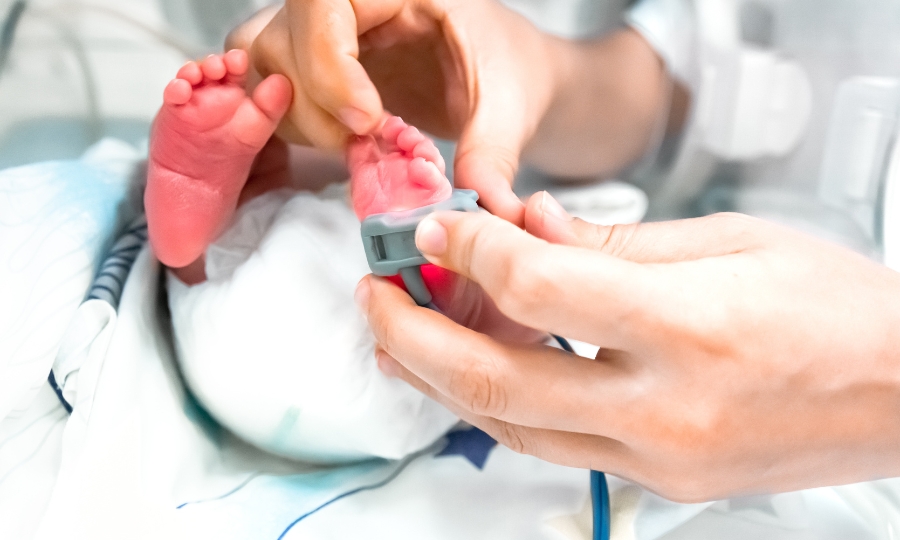The Harmful Impact of Racial Bias in the NICU
Desi Newberry, DNP, NNP-BC and colleagues are researching how racialized labels are harmful to health outcomes.

In the neonatal intensive care unit (NICU), stereotypes about the “Wimpy White Boy” and “Strong Black Female” are pervasive. These labels ascribe relative weakness and strength to infants depending on their race—and while not necessarily ill-intended, they undercut the need to carefully monitor infant health.
To help address this issue, Dr. Desi Newberry coauthored the editorial, “Inappropriate Labeling in the NICU: The Strong Black Female and the Wimpy White Boy,” published in Advances in Neonatal Care.
“There is a long-held belief that Black females are the strongest of the premature babies, while White males are the weakest or least mature for any given gestational age,” said Dr. Newberry. “These presumptions stem from perceived differences in pulmonary maturation between Black and White infants.”
Dr. Newberry coauthored the article with Tracey Bell, DNP, NNP-BC, and two alumni of the Duke School of Nursing’s Neonatal Nurse Practitioner (NNP) MSN program, Anjavi Sharma and Amanda Williams.
The authors of “Inappropriate Labeling in the NICU” argue that these racialized labels are examples of microaggressions, a form of implicit bias. The authors warn that using labels such as these can cause providers to overlook signs of danger in Black infants because they are “strong” and “will do fine.” By that same token, providers might also fail to properly diagnose White infants because they are deemed “wimpy.”
The potential consequences of racial bias in the NICU are severe. According to the article, infant mortality increased by three percent in 2022 for the first time in 20 years, with the mortality rate of non-Hispanic Black infants more than double that of infants of other races. Racial stereotypes that influence nursing practice can exacerbate health disparities between communities and worsen health outcomes across the board.
In addition to overlooking or misdiagnosing infants, providers using inappropriate labels risk offending patients’ families or diminishing their confidence that their infants will receive proper care, according to the article. Instead, families should be assured that their infants will receive the same level of clinical vigilance regardless of race.
Nursing education that confronts racial bias is crucial to creating a nursing workforce where infants and their families receive the best care possible. Faculty members like Dr. Newberry help to ensure that the School of Nursing is at the cutting edge of equitable nursing practice, preparing graduates to make a positive impact on a broader society where racial bias is, unfortunately, all too common.
“As nurse educators, we have a responsibility to help students recognize and address implicit bias. The first step in addressing implicit bias is recognizing our own bias,” said Dr. Newberry. “By eliminating the use of inappropriate labels in the NICU, neonatal nursing professionals can take a significant step towards eliminating health inequities that exist in the NICU.”
Dr. Newberry and her team anticipate publishing more research on this topic over the next several months.
